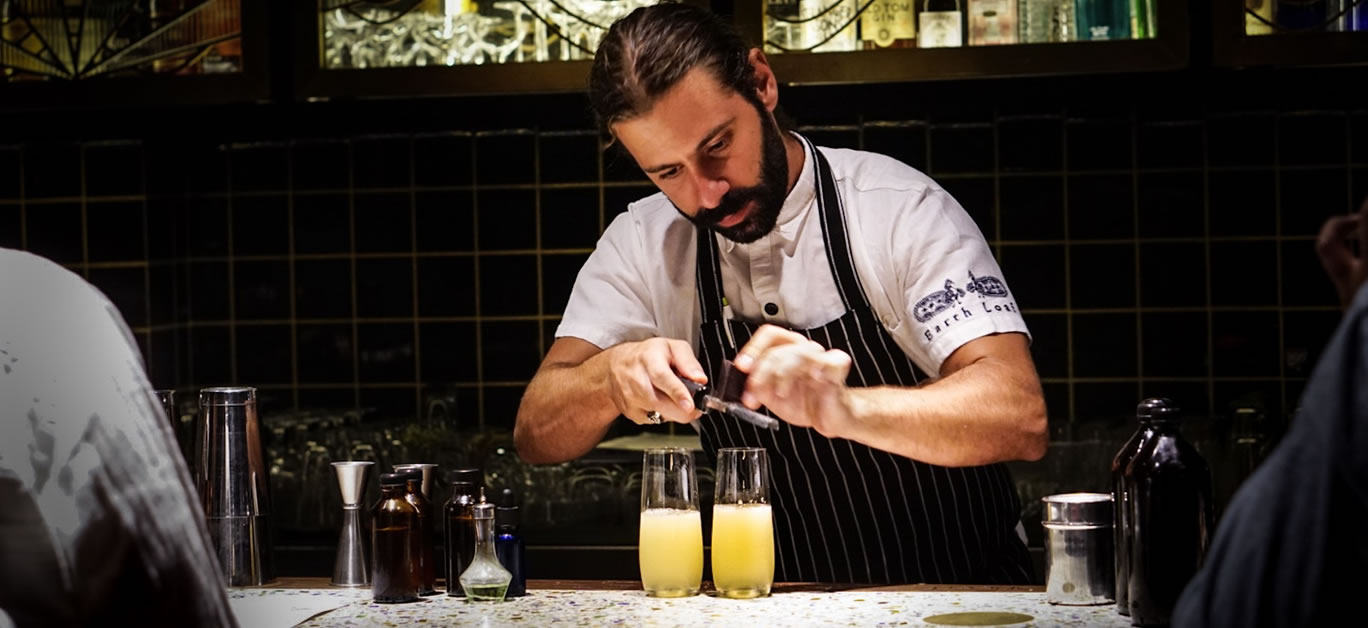Words by Roshna Chandran
After a five month lockdown ordeal due to the Covid-19 global pandemic, artisanal chocolatiers Naviluna, based in Mysore, South India, are geared up for business. A chocolate factory established by David Belo in 2012, the brand soon grew into phenomenal recognition among the Indian audience for its unique flavours. Here, David talks to LLM – Luxury Lifestyle Magazine on how he established one of the finest blends of artisan chocolates from India.
How have Indian cacao beans made a mark in the global chocolate market?
When we started in 2012, Indian cacao was considered to be of an extremely low standard and then within a span of six years, it was named the ‘Origin of The Year’. We were competing with several other notable chocolate makers who had released Indian Single Origin chocolate bars. This has been attributed to significant improvements in quality. Working with Indian cacao beans has been an on-going process and something of a collaborative effort with farmers and the post harvest processors – all working to improve its general quality. As cacao quality improves, our chocolate becomes more refined. Globally the perspective on Indian cacao has changed dramatically.
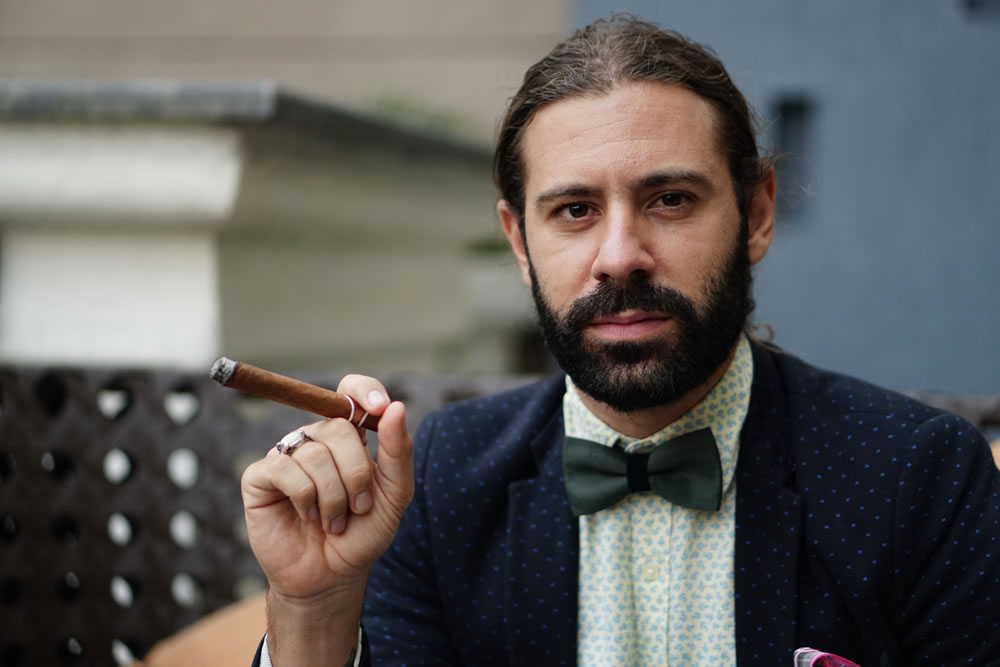
What factors actually made it suitable to have a chocolate factory in a tropical country?
Our factory is conveniently located between our agricultural centers (mainly Pollachi District) and our primary market (Bangalore). Mysore, a Tier 2 city, and offers the right amount of space with lower levels of pollution, lower living costs that translate into cheaper costs of production and labour. However, this is also offset against higher courier and logistics costs for inbound and outbound goods.
What is the philosophy behind Naviluna Chocolates?
Live well. Live in qualities not quantities.
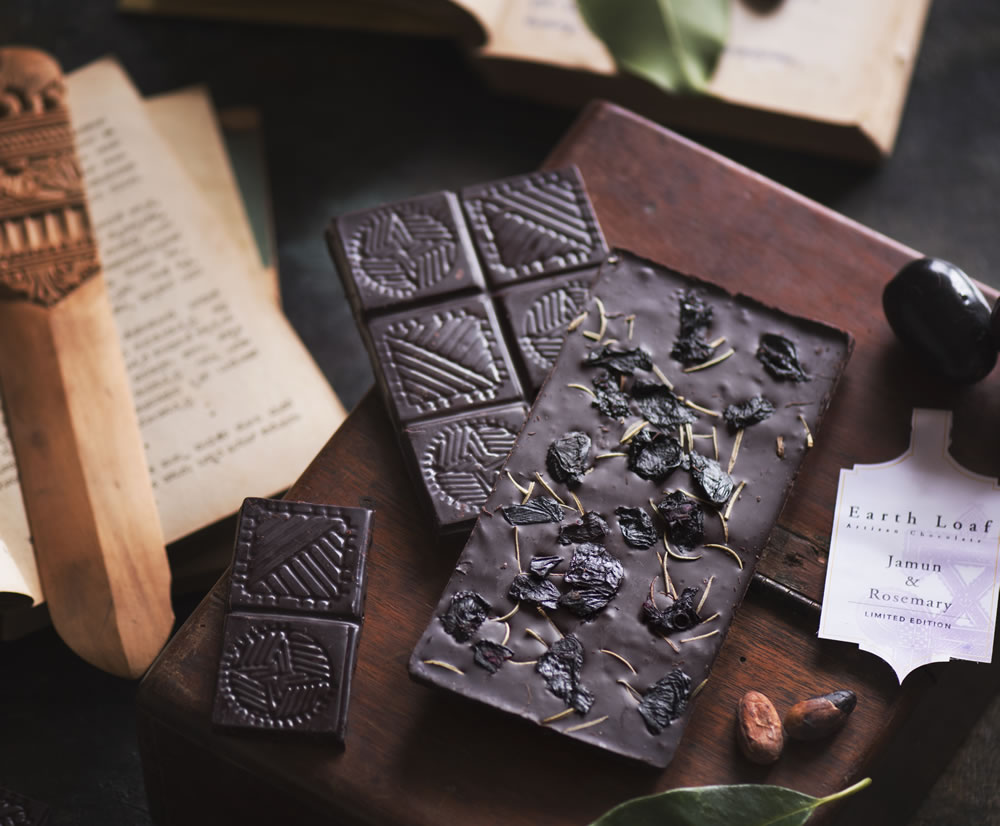
Do you see an increase in demand for vegan / organic / designer packaging?
Veganism, organic and designer packaging will continue to be a major trend. Whilst some companies choose to define themselves by one catchphrase or the other, we have never sought to be in-vogue. Naviluna represents ‘living well’. We have been meticulous; from supply chain to sustainability, to packaging materials, its design, flavours, creative content to promotional media as well as our general brand aesthetic and brand voice.
Tell us about the different categories of chocolates that you have.
The single origin bars are the pure version of what we do. They offer the consumer a window into the complexities of craft chocolate, demonstrating the unique terroir and provenance in each region (Kerala, Karnataka, Malabar Hills and Tamil Nadu).
The Naviluna ‘Almost Dark’ 61.8% single origin dark chocolate has notes of cedar wood, pepper, red berries, coriander, leather and light tobacco.
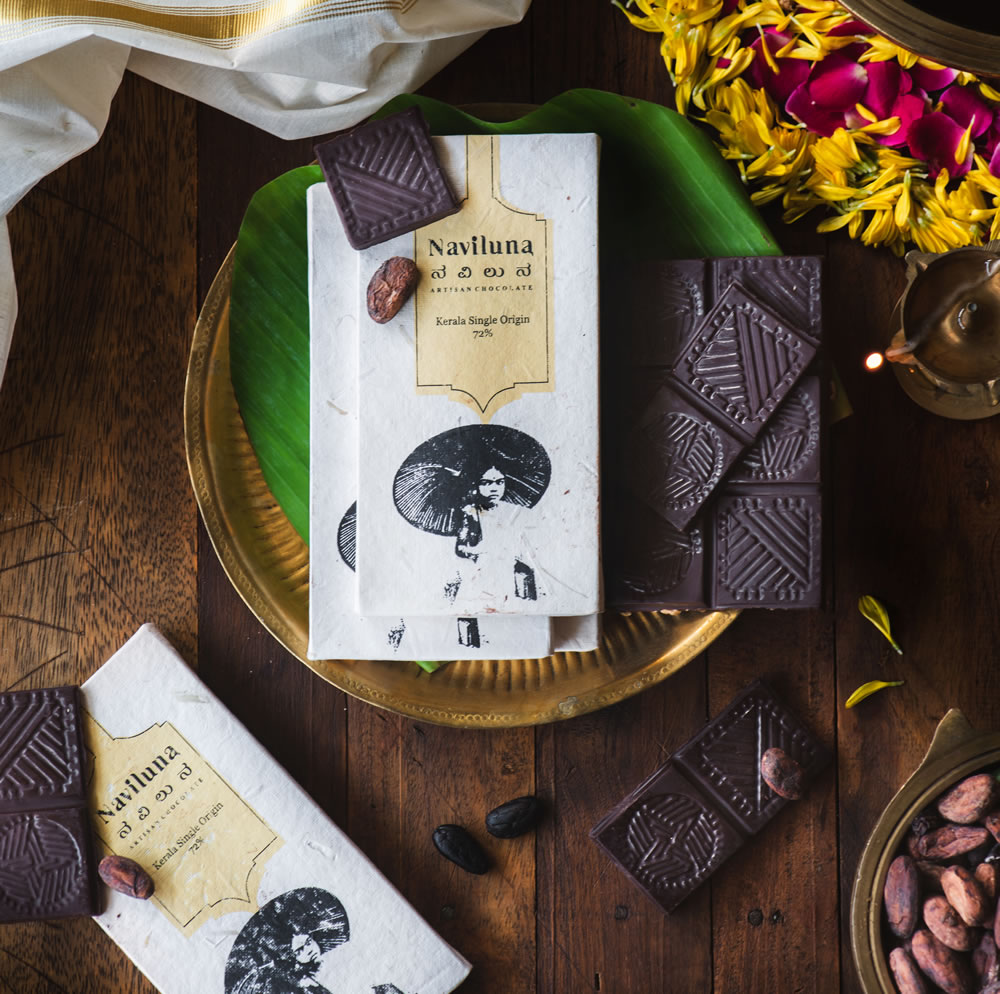
Our inclusions are more a postcard from India, typically reflecting the seasons – hence the current collection that is out at the moment is our Monsoon collection. The 72% Jamun and Rosemary is where we brought together the fragrant, floral and tart Jamun with Rosemary.
Our Naviluna Tokai Coffee and Pineapple bagged the Great Taste Award from the Guild of Fine Food, UK 2017. Its subtle coffee and cacao flavours mingle with the tanginess of pineapple and fresh vanilla.
We have more fruity flavours in our Naviluna ‘Almost Dark’ 61.8% Tres Bale which features three prominent banana varieties; the Elakki, Rasa and Kadu, that has been flambéed, candied and dusted.
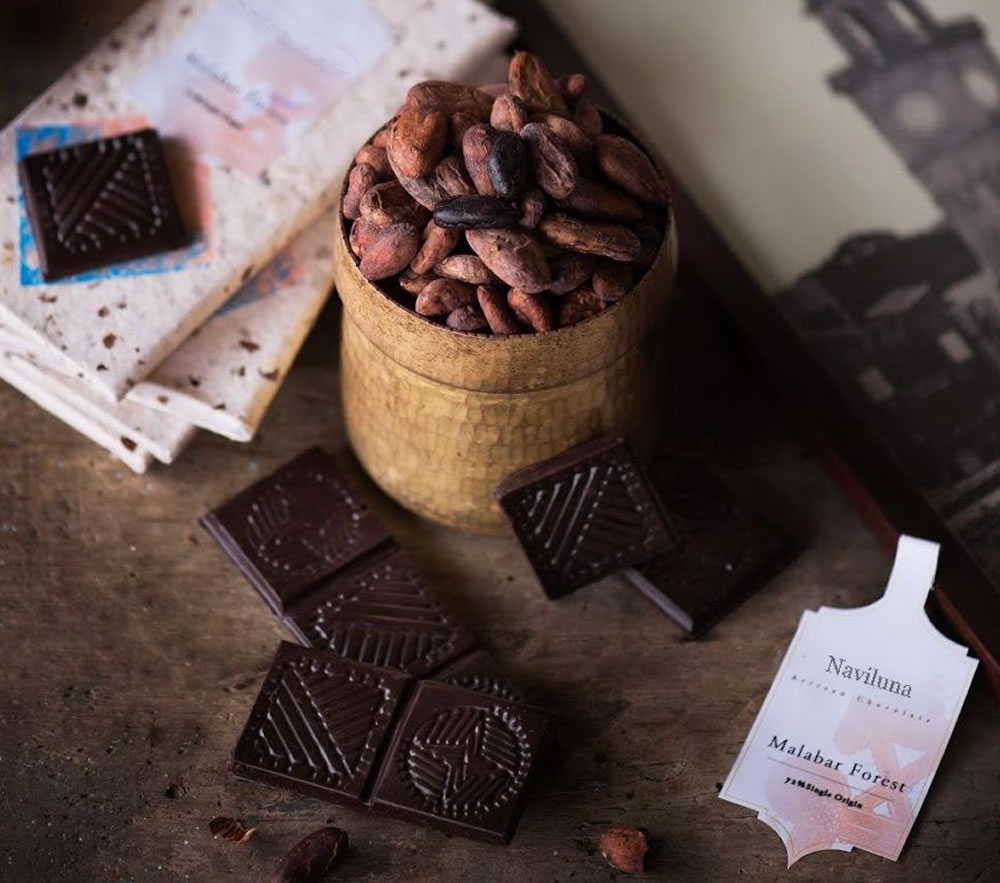
The Naviluna Cacao nib and Coconut Sugar has an equal blend of delicious raw cacao nibs and rich coconut sugar from Tamil Nadu, giving the chocolate bar an extra crunchiness and sweetness.
All our chocolate varieties are hand crafted at low temperatures. The bean to bar are made in small batches showcasing the distinctive terroir and flavour of South Indian cacao.
Having set up your chocolate factory from scratch in a country that was new to you, what challenges have you faced?
We have had lakhs of damages due to frequent power cuts (especially during the monsoon season), causing delays in production and delivery. The floods in Kerala had also drastically affected our key area of sourcing cacao. Educating our consumers is an ongoing process but one of the biggest struggles has been bureaucracy and unnecessary regulations where local government offices and license officials often doing more to impede business. Compliances for MSME PVT LTD companies is far too complex leading to operations distractions, a drain in energy as well as focus and racking up professionals fees that MSME’s really can’t afford.
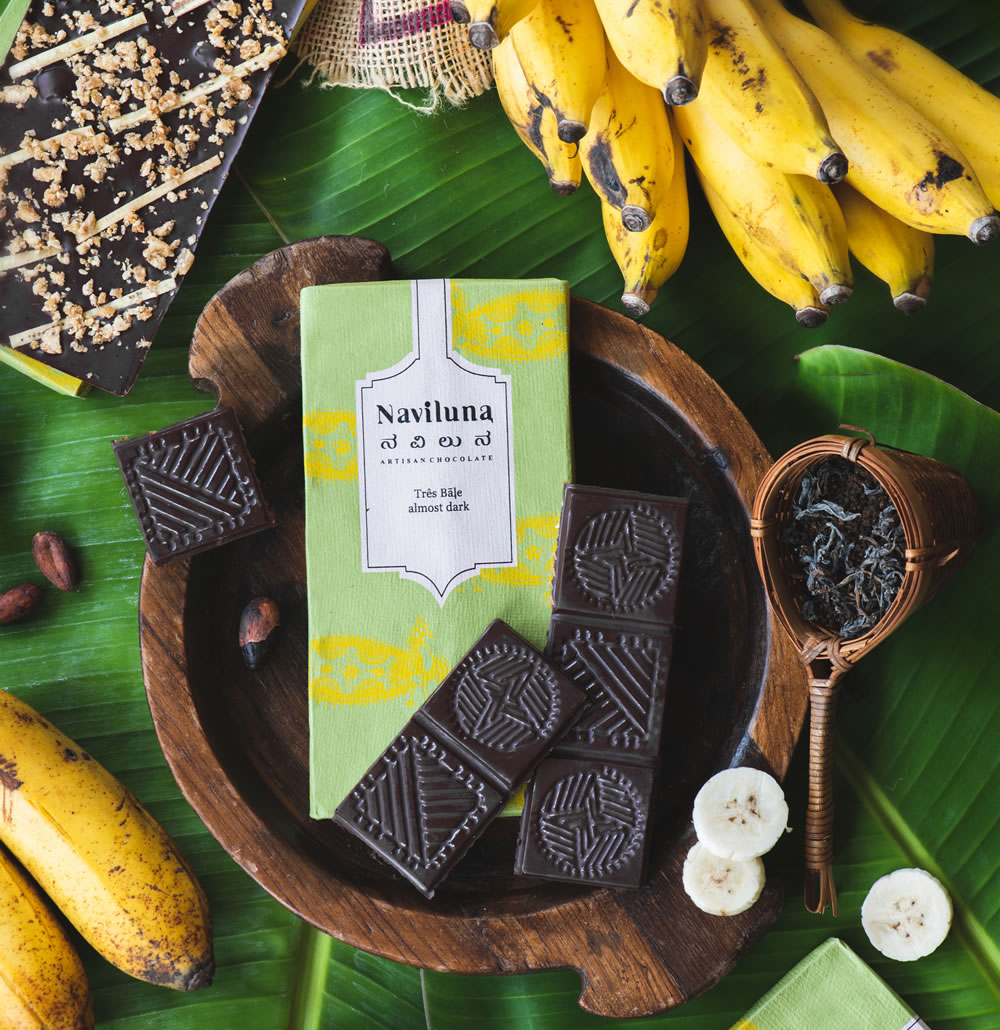
Another factor is policy volatility: From demonitisation to the implementation of GST created significant disruptions to the business. On the other hand GST was vital and gradual digitalisation of government administration is making things easier.
Another drawback was the dip of the INR last year, which added approximately 10% to the cost of our loans which were issued in USD and GBP, and incentivised some of our farmer groups to sell their cacao on the foreign market leaving India with a cacao deficit in 2019.
How have you tackled retaining talented staff?
Lavonne (Bangalore based) and SEP (Mumbai) have been supplying us with talent. We value candidates who have invested in learning and having hands-on experiences in culinary arts. Today’s generation seem to struggle with the idea of staying in a job for more than a year or two, but they are more knowledge hungry than money hungry. Hence I have found that a strong training curriculum is a vital asset in keeping talented staff.












